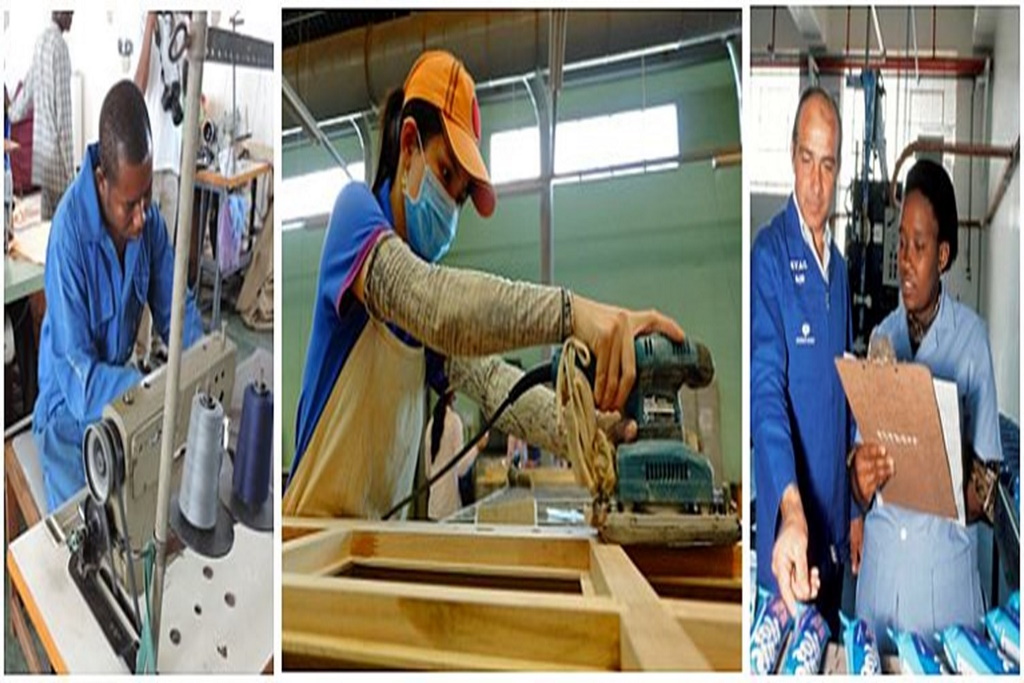This trend is of particular concern to most emerging and developing economies. Here, the contribution of structural transformation (i.e. labour reallocation toward higher-productivity sectors as well as within-sector transformation) to productivity growth has slowed down and integration in global and regional value chains, which is key to boosting technology transfers, digitalization and improved management processes at enterprise level, is decreasing.
The strong growth in services sectors in many emerging and developing countries has also led to increased divergence in productivity, especially in those countries where jobs are moving from agriculture directly to services, bypassing manufacturing.
Rather than generating productive employment , this trend has expanded low-productivity informal jobs in the services sector while leaving low-productivity jobs in agriculture as the main provider of employment in developing countries.
Achieving a virtuous cycle between productivity and decent work is required if economic growth is to lead to poverty alleviation and prosperity. To create and strengthen this virtuous cycle, the ILO proposes the Productivity Ecosystems Programme. The Programme is built on the recognition that productivity growth and the pre-Covid slow-down are determined by a myriad of interfacing dynamics across policy, markets and enterprises (see figure below). Furthermore, the virtuous cycle between productivity and decent work, where productivity growth leads to decent job creation and vice-versa, is not automatic.
 Productivity Ecosystem Conceptual Framework with a "Slice" of the Ecosystem Selected
Productivity Ecosystem Conceptual Framework with a "Slice" of the Ecosystem Selected
Therefore, rather than using a “one size fits all” approach or intervening at a single level, the Programme will address productivity and decent work deficits across policy, sector and enterprise levels for win-win solutions that improve productivity and that ensure, through social dialogue and workplace cooperation, that gains are distributed equitably. For this purpose, the Programme will select a “slice” of the local productivity ecosystem, i.e. a sector and associated segment of the overall ecosystem in which the potential for productivity growth and decent job creation are aligned with feasibility to intervene.
The Programme aims to achieve lasting change by addressing the root causes of low productivity – not just to treat the symptoms – and by promoting the capacity and ownership of local and national actors. Implemented by the ILO’s Enterprises and Employment Departments, in collaboration with SECO and NORAD, the Programme will be piloted in South Africa, Ghana and Viet Nam.

